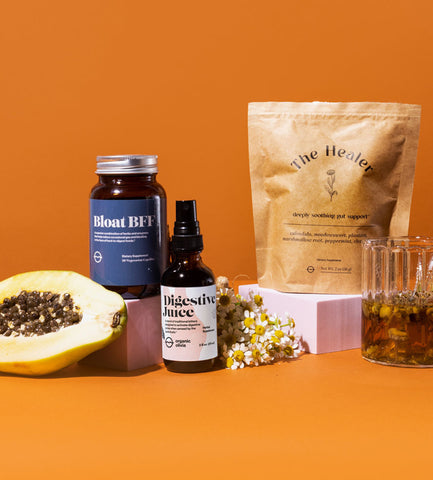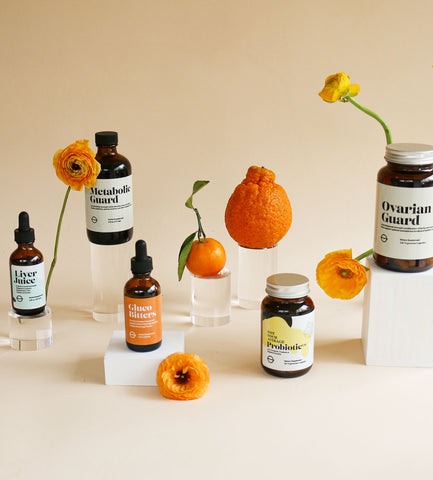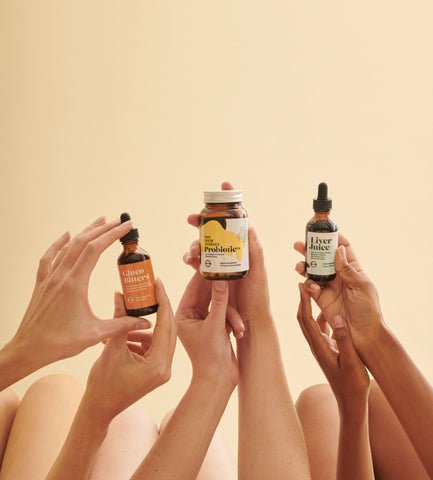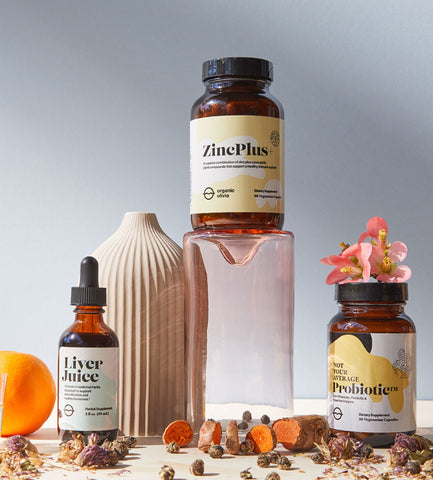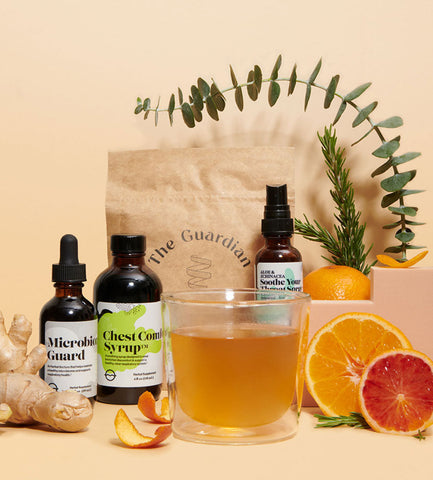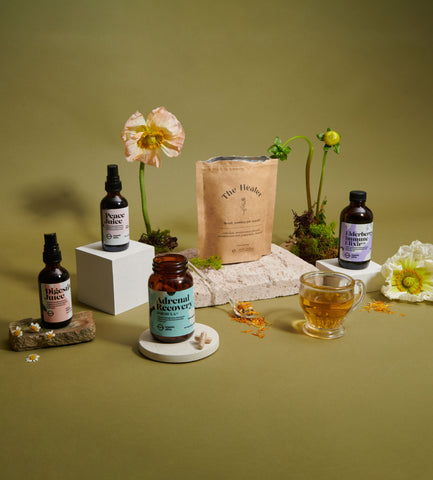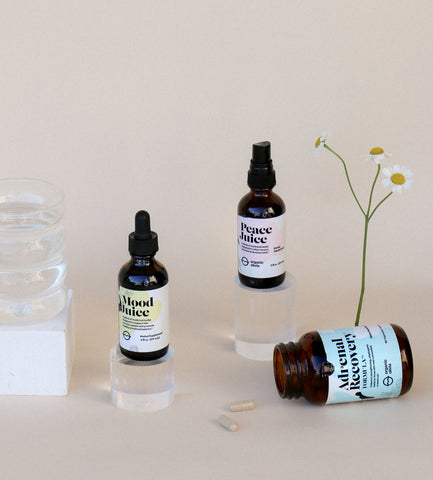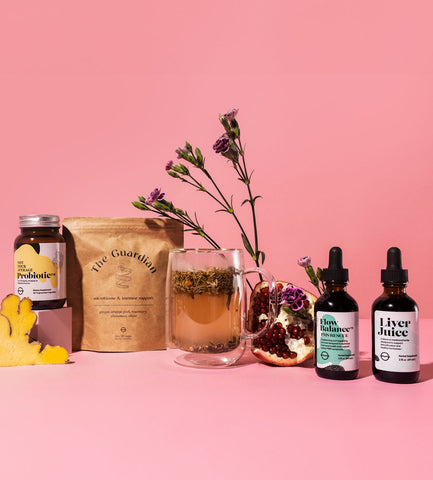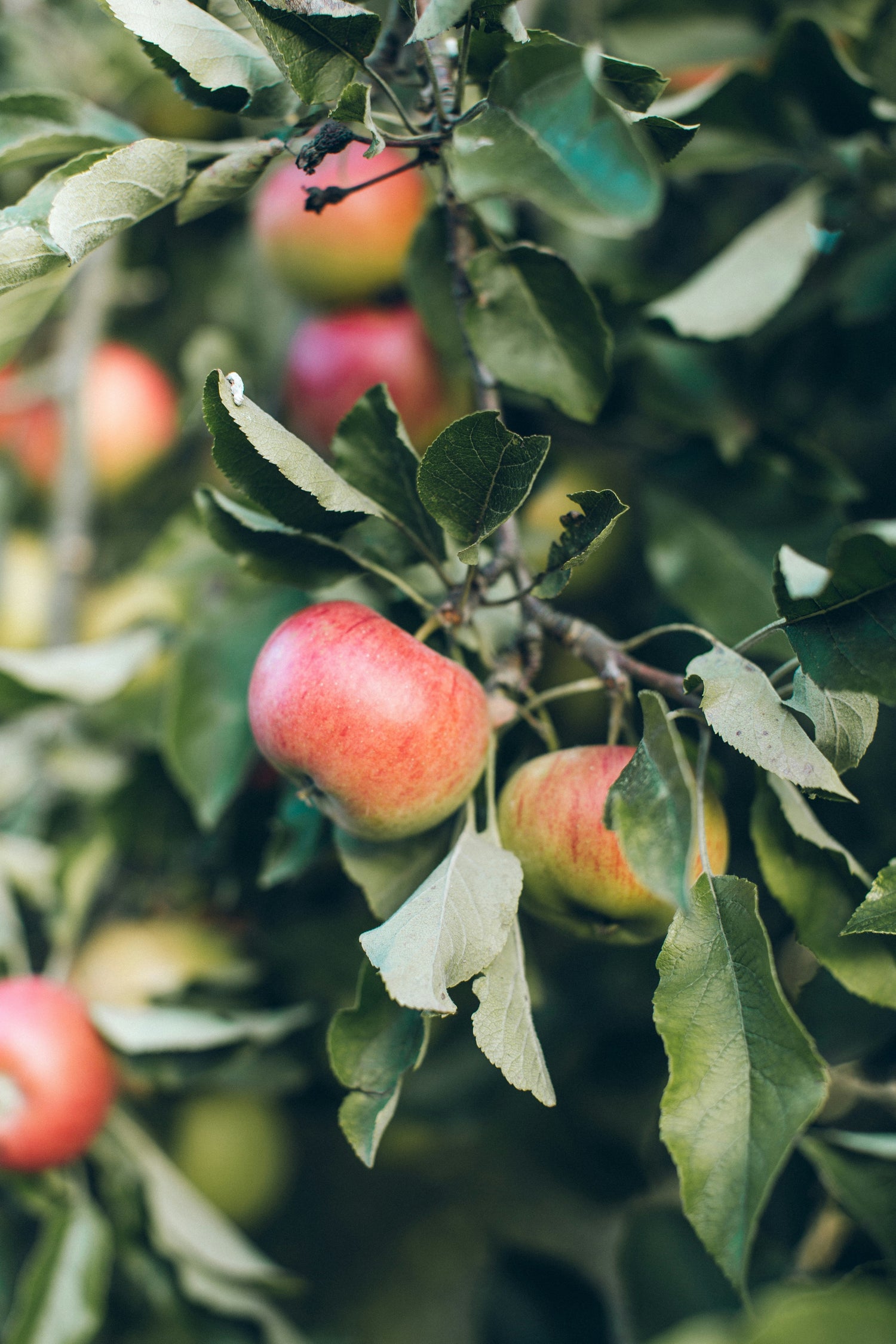Here's something most women don't realize: every vagina has its own unique, natural scent! Most women have a musky or fleshy natural odor, though the exact scent varies from person to person. Your vagina smell can even change throughout your menstrual cycle period.
However, when that familiar scent becomes unpleasantly strong or develops a fishy smell, it can leave you feeling concerned and embarrassed. A strong vaginal odor or smelly vaginal discharge can be distressing. I understand how uncomfortable this can be! Bacterial vaginosis (BV) is often the culprit behind that fishy vaginal smell. This common BV infection happens when bacterial overgrowth disrupts your vagina's natural pH balance. What you eat matters too — foods like asparagus, garlic, and onions can actually intensify vaginal odor.
Here's the good news: you don't need harsh chemicals or expensive products to address this sensitive issue. There are many doctor-approved natural solutions that can help restore your vaginal health right from home. Rather than just masking symptoms, these evidence-based approaches target the root causes of vaginal odor. You can regain your confidence naturally and get back to feeling like yourself!
What's Really Causing Your Vaginal Odor
Getting to the root of vaginal odor is key to finding lasting solutions. Your vagina naturally maintains a delicate ecosystem, but several factors can throw this system out of whack.
When Your Bacterial Balance Gets Disrupted
Your healthy vagina is home to a carefully balanced ecosystem dominated by beneficial bacteria called lactobacilli. Think of these "good" bacteria as your vagina's personal bodyguards! They maintain an acidic environment with a pH between 3.5 and 4.5, creating a protective barrier against harmful microorganisms. When this balance gets disrupted, odor-causing bacteria move in and take over.
Bacterial vaginosis (BV) is the most common vaginal infection, affecting 15% to 50% of women of reproductive age. What happens during BV? Your beneficial lactobacilli decrease while problematic bacteria like Gardnerella vaginalis, Prevotella, and Megasphaera multiply rapidly. These troublemakers produce compounds called biogenic amines that create that telltale "fishy" smell. Understanding the cause of BV is crucial for effective treatment.
The symptoms of BV
Mild cases of bacterial vaginosis (BV) often go unnoticed, with up to 84% of women experiencing no symptoms. When symptoms are present, they can overlap with those of a yeast infection but often include:
-
A strong fishy odor, especially after sex
-
Thin gray, white, or slightly green discharge
-
Vaginal pain, irritation, or itching
-
Occasionally, pain or burning during urination
-
A vaginal pH of 4.5 or higher, which can be easily confirmed by a doctor
Your Hormones Play a Major Role
Hormonal changes throughout your life have a huge impact on vaginal health. During your period, vaginal discharge may smell slightly metallic due to iron in menstrual blood. Your vaginal microbiome actually changes rapidly throughout your monthly cycle, with bacterial diversity often increasing during menstruation.
Pregnancy brings its own set of changes. It alters cervical mucus and may cause new odors due to increased blood flow and shifting hormone levels. Menopause creates perhaps the most dramatic changes of all. As estrogen levels drop, your vaginal walls thin, causing less cell turnover and glucose production. This raises vaginal pH, which decreases those protective lactobacilli and increases your risk of odor and infections.
Diet, Hydration, and Daily Habits Matter More Than You Think
What you eat and drink directly affects your vaginal health. High-sugar diets and processed foods can wipe out beneficial bacteria, creating the perfect environment for infections to thrive. Certain foods like garlic, fish, and spicy foods may temporarily change how your vagina smells. A nutritious diet rich in whole grains and lean proteins can support vaginal health.
Are you drinking enough water? Dehydration leads to concentrated urine with a strong ammonia smell that can affect the vaginal area. You should aim for at least six 8-ounce cups of fluid daily to maintain proper hydration.
Your personal habits play a significant role too. Douching disrupts the natural balance of vaginal bacteria and increases your BV risk. Smoking cigarettes has been strongly linked to BV, as nicotine actually shows up in vaginal secretions of women who smoke.
Don't underestimate the power of stress either. Chronic stress increases your susceptibility to infections by altering vaginal chemistry through biogenic amines and inflammatory responses. These changes raise vaginal pH and destabilize your beneficial bacteria community. Adopting healthy lifestyle habits can make a big difference in maintaining vaginal health.
Natural Ways to Get Rid of Vaginal Odor at Home
Restoring your vaginal health naturally starts with simple daily habits that work. Here are eight doctor-approved methods to tackle vaginal odor at home.
1. Clean the vulva gently with warm water
Your vagina is self-cleaning, so focus on the external area only. Wash your vulva daily with warm water, spreading the labia to clean between the folds. If you want to use soap, choose a mild, unscented option like Dove specifically for the vulva—never inside the vagina. Always wipe from front to back after using the toilet to prevent bacterial transfer. Proper hygiene habits are crucial for neutralizing vaginal odor.
2. Avoid douching and harsh soaps
Douching disrupts your vagina's natural pH balance and can force bacteria deeper into your body. This can lead to serious infections like pelvic inflammatory disease. Stay away from scented feminine hygiene products, including sprays, wipes, and perfumed soaps. These products irritate sensitive tissues and eliminate the beneficial bacteria your body needs.
3. Drink more water to flush toxins
Proper hydration helps eliminate that strong ammonia smell often associated with concentrated urine. I recommend aiming for six to eight glasses daily. This supports your body's natural detoxification processes and helps maintain overall vaginal health. Keeping the vaginal area dry is also important for preventing odor.
4. Eat probiotic-rich foods like yogurt
Fermented foods containing live cultures help restore beneficial bacteria in your system. Include yogurt, kefir, kimchi, sauerkraut, and pickles in your diet to support vaginal flora. These foods promote Lactobacillus, which maintains healthy acidity levels in your vagina. Some women find that garlic supplements can also help, but consult your doctor before trying them.
5. Wear loose, breathable underwear
Choose 100% cotton underwear that absorbs moisture and allows airflow. Tight-fitting synthetic fabrics trap heat and moisture, creating perfect conditions for odor-causing bacteria to thrive. Consider going underwear-free at night to increase ventilation. Breathable clothing is key for maintaining vaginal health.
6. Use condoms to prevent pH disruption
Studies show consistent condom use reduces bacterial vaginosis risk by up to 45%. Condoms create a barrier that prevents semen (pH 7.0-8.0) from altering your vaginal acidity and disrupting your microbiome. Be cautious with coated condoms or flavored sexual lubricants, as these can sometimes cause irritation.
7. Change menstrual products regularly
Replace tampons, pads, or menstrual cups every 4-8 hours. Menstrual blood creates a breeding ground for bacteria when left too long. This leads to unpleasant odors and potential infections. Avoid using perfumed tampons or scented panty liners, as these can disrupt your natural balance.
8. Try Flora-V for microbiome support
For stubborn vaginal odor, probiotic supplements specifically designed for vaginal health can help restore balance. Flora-V is a gentle but powerful way to support your vaginal health from the inside out. This daily supplement is packed with four specific strains of good bacteria (like Lactobacillus. gasseri and Lactobacillus. rhamnosus) that are known to naturally live in the vaginal microbiome. These probiotics help restore balance, support a healthy pH, and crowd out the odor-causing bacteria linked to BV and yeast infections. By arming your microbiome with a daily dose of beneficial, vaginal tract-specific Lactobacillus strains, you’re getting multiple benefits.

Flora-V
A vaginal probiotic + clinically studied cranberry extract that targets urinary tract health, normal pH levels, odor, and yeast balance.*
STAR HERB: Cranberry
Flora-V also includes Cranberex™, a concentrated cranberry extract that helps keep your urinary tract healthy and supports your body's natural defenses. Together, the probiotics and cranberry work to create an environment where fresh, healthy bacteria can thrive — which means less odor and more confidence.
What Not to Do: Common Mistakes That Make Vaginal Odor Worse
Knowledge is power when it comes to feminine hygiene! Many women unknowingly make their vaginal health problems worse by following popular advice that sounds helpful but actually disrupts their natural balance.
Douching Destroys Your Vaginal Ecosystem
Despite what marketing claims tell you, douching severely disrupts your vaginal ecosystem. This practice has been linked to numerous health problems including bacterial vaginosis, pelvic inflammatory disease (PID), and serious reproductive complications. Women who douche often (once a week) are five times more likely to develop bacterial vaginosis than those who don't.
What's even scarier? Douching can push existing infections deeper into your reproductive system. Instead of cleaning your vagina, it can force bacteria into your uterus, fallopian tubes, and ovaries, potentially causing PID. This dangerous infection can lead to fertility problems and increase your risk of ectopic pregnancy by up to 76%.
Food Items Don't Belong in Your Vagina
You've probably seen advice about inserting garlic cloves, cottage cheese, or yogurt into your vagina. Don't do it! Although there have been limited studies on garlic suppositories for vaginitis, raw garlic can cause burning, irritation, and allergic reactions.
These home remedies typically fail to address the underlying cause of odor and may worsen your vaginal microbiome. Even natural remedies like apple cider vinegar can disrupt your vaginal pH and beneficial bacteria.
Scented Products Cause More Problems Than They Solve
Perfumed feminine products might seem like the obvious solution, but they often contain harmful chemicals. Scented tampons contain terpene concentrations over 200 times greater than unscented versions. These fragrances can:
-
Irritate sensitive vaginal tissues
-
Kill beneficial bacteria
-
Disrupt your vaginal pH balance
-
Create environments where harmful bacteria thrive
-
Increase infection risk
Your vagina doesn't need perfumes to smell "fresh." These chemicals merely mask natural odors temporarily while potentially creating more serious problems. Stick with the natural methods I shared earlier and avoid any product with added fragrance.
When You Need Medical Help
Home remedies work well for mild vaginal odor issues. However, you need to know when it's time to seek professional help. Certain symptoms are red flags that warrant a doctor's visit.
Persistent Fishy Smell That Won't Go Away
A persistent fishy odor that doesn't improve with natural methods often signals bacterial vaginosis or other infections that need medical treatment. This fishy vaginal smell typically gets stronger after intercourse or during menstruation. Any odor lasting longer than 1-2 weeks despite trying natural remedies needs professional evaluation.
Watch for these warning signs:
-
Greenish-yellow or grayish discharge with a strong fish-like smell
-
Odor that gets worse despite proper hygiene practices
-
Recurring odor problems after temporary improvement
Pain, Itching, or Unusual Discharge
Other symptoms serve as important warning signs beyond odor alone. Any combination of vaginal odor with pain, burning sensation, or vaginal itching suggests a more serious condition. Unusual discharge consistency or color is also concerning. Thick, cottage cheese-like discharge or discharge with blood when you're not menstruating can indicate yeast infections or sexually transmitted infections.
What to Expect at Your Doctor's Visit
Your healthcare professional will likely:
-
Take your medical history, including menstrual patterns and sexual activity
-
Perform a pelvic examination to check for visible irritation or abnormal discharge
-
Collect samples for laboratory testing to identify specific infections
-
Prescribe targeted treatments based on your diagnosis
Treatment typically involves specific antibiotics for bacterial vaginosis or antifungal medications for yeast infections. After medical treatment, supplements like Flora-V can help maintain your restored vaginal microbiome and prevent recurrence by supporting beneficial bacteria growth.
Remember, seeking timely medical help isn't a failure of home remedies. It's a necessary step for optimal vaginal health care. Your doctor can provide personalized guidance on combining medical treatments with natural approaches for the best long-term results.
Take Back Your Vaginal Health Naturally
Maintaining optimal vaginal health comes down to understanding your body and supporting it with gentle, natural methods. You've learned that your unique scent is completely normal, and simple changes can make a world of difference when issues arise.
Gentle hygiene practices are your foundation — washing only the external area with warm water, choosing breathable cotton underwear, and staying well-hydrated. These basic habits support your vaginal ecosystem naturally. Probiotic-rich foods work alongside these practices to nourish the beneficial bacteria that keep your pH balanced and healthy.
When natural methods need extra support, targeted supplements like Flora-V can help restore healthy lactobacilli colonization. This gives your body the specific support it needs to maintain balance naturally. Of course, persistent fishy odors, unusual discharge, or ongoing discomfort mean it's time to see your healthcare provider for proper evaluation.

Flora-V
A vaginal probiotic + clinically studied cranberry extract that targets urinary tract health, normal pH levels, odor, and yeast balance.*
STAR HERB: Cranberry
Most importantly, remember that vaginal odor is often just your body doing what it's supposed to do. Temporary changes happen, and they're rarely cause for serious concern. You have the power to support your vaginal health naturally and effectively. With the right approach, you can feel confident and comfortable in your own body without relying on harsh chemicals or expensive treatments.
This article is for informational purposes only and does not constitute medical advice. Always consult with a healthcare professional early for personalized recommendations regarding your vaginal health.



